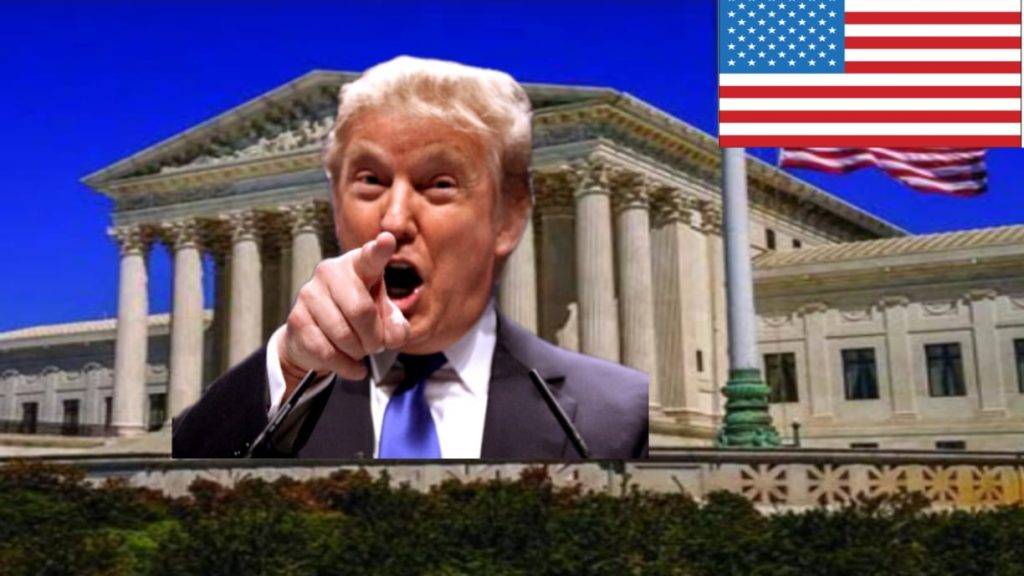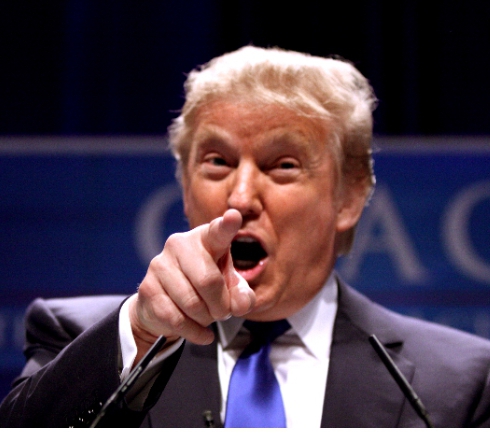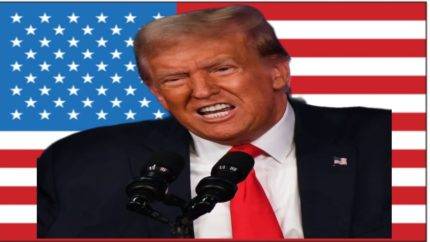Trump’s Gag Order Battle: New York Court Reinforces Silence
In a pivotal development for Donald Trump’s legal battles, the New York Court of Appeals has decisively reinstated a gag order, dealing a significant setback to the former president and his legal team. The order, imposed by Judge Arthur Engoran, serves as a strategic measure to quell Trump’s proclivity for issuing unfounded criticisms against courtroom staff and individuals connected to the ongoing $370 million civil fraud trial. This decisive move underscores the court’s commitment to upholding decorum in the high-stakes legal proceedings and highlights the paramount importance of maintaining a fair and respectful environment throughout the trial process.
The court’s rejection of the appeal not only underscores the efficacy of Judge Engoran’s measures but also signals a firm stance against attempts to circumvent restrictions on public statements. This development further emphasizes the court’s dedication to ensuring a fair trial free from undue influence, making it clear that unsubstantiated attacks and rhetoric will not be tolerated. The reinstated gag order stands as a testament to the judiciary’s commitment to upholding the integrity of the legal process in the face of high-profile cases, reinforcing the notion that decorum and respect are essential elements in the pursuit of justice.
Desperation Unveiled: Trump’s Legal Tactics Face Setback
In a significant development, Donald Trump’s strenuous endeavor to lift the gag order imposed in Letitia James’ civil fraud trial faces a formidable obstacle, as the New York Court of Appeals resolutely maintains its stance. This recent setback not only hinders Trump’s bid to freely discuss the case but also serves to safeguard the integrity of the ongoing legal proceedings from potential disruptions. The court’s steadfast position, emphasizing the absence of any substantial constitutional question at hand, highlights the paramount significance of upholding legal norms, underscoring that even individuals of high profile are subject to the rule of law.
This legal impasse reinforces the notion that no one, regardless of their prominence, is exempt from the judicial process. By firmly denying Trump’s attempt to remove the gag order, the New York Court of Appeals reinforces the principle that legal proceedings should unfold without undue external influence, promoting a fair and impartial trial. This steadfast commitment to legal integrity not only shapes the trajectory of Trump’s case but also serves as a broader example of the judiciary’s dedication to maintaining order and adherence to the rule of law in high-stakes legal matters.

Legal Landscape: Gag Order Reinstated to Ensure Fair Trial
In a pivotal moment amid the ongoing legal dispute, the recent decision by the New York court to reinstate the gag order holds significant implications for the integrity of the civil fraud trial involving Donald Trump. The court’s resolute action in re-imposing the gag order underscores its commitment to preserving the fairness and impartiality of the trial proceedings. By limiting the dissemination of potentially prejudicial statements, the court aims to shield the trial from external influences that could compromise the objective examination of evidence and testimony.
This reinstatement of the gag order, originating from Judge Engoran, is a strategic move within the legal framework to prevent the proliferation of information that may sway public perception. As the court prioritizes a fair trial, it recognizes the importance of curbing any extraneous factors that could interfere with the judicial process. This deliberate measure not only safeguards the trial’s integrity but also underscores the judiciary’s commitment to upholding the principles of justice, ensuring that the proceedings remain focused on the merits of the case rather than external narratives.
Trump’s Verbal Restraints: Impact on Public Perception
In a significant turn of events, the imposition of a gag order adds a layer of intrigue to the unfolding legal drama involving a former president. This unprecedented move underscores the seriousness of the civil fraud case, compelling a closer examination of the legal intricacies at play. As the public grapples with the restricted discourse, the impact on Trump’s public image becomes apparent, fostering an environment where the trial’s merits take center stage without the influence of unchecked verbal commentary. This strategic legal intervention not only serves to maintain the integrity of the legal proceedings but also guides the public narrative towards a more impartial and focused discussion on the core issues of the case.
The court’s decision to curb Trump’s ability to openly discuss the ongoing trial elevates the discourse surrounding the civil fraud case. This calculated restriction not only speaks to the weight of the accusations but also addresses concerns about potential biases in public perception. By limiting the former president’s verbal expressions, the court aims to foster an atmosphere conducive to a fair and unbiased evaluation of the trial. This move is poised to shape a more informed public discourse, emphasizing the importance of scrutinizing the case on its legal merits rather than being swayed by extraneous factors.

Constitutional Questions: Court’s Firm Stance Explained
In a landmark decision, the court’s dismissal of Trump’s appeal revolves around the lack of substantial constitutional questions directly linked to the reinstated gag order. This unequivocal stance reflects the judiciary’s unwavering dedication to upholding the integrity of legal proceedings. The court’s firm rejection of challenges to the order serves as a resounding affirmation that prioritizing legal decorum and ensuring a fair trial holds greater importance than succumbing to personal grievances or engaging in efforts to sway public opinion.
This pivotal ruling not only underscores the court’s commitment to the sanctity of legal processes but also sends a powerful message about the paramount significance of maintaining a level playing field in the pursuit of justice. By rebuffing attempts to contest the order, the court emphasizes the foundational principle that justice should be blind to external pressures, fostering an environment where legal proceedings can unfold impartially and without compromise.
Ongoing Fallout: What’s Next for Trump’s Legal Strategy?
In the aftermath of the court defeat, Donald Trump’s legal strategy comes under scrutiny as a gag order is enforced, redirecting attention to his subsequent legal maneuvers. This shift in focus towards Trump’s response to the civil fraud trial unveils a complex landscape marred by limitations on public statements. The challenges posed by the gag order compel Trump and his legal team to navigate a delicate balance between defending their client’s interests and adhering to the legal constraints. As the proceedings unfold, observers are keenly watching how the former president adapts his approach in light of the evolving narrative restrictions, raising intriguing questions about the strategic adjustments that may emerge.
The implications of the ongoing fallout from this legal development extend beyond the courtroom, shaping perceptions of Trump’s legal acumen. The constraints on public statements not only test the former president’s legal prowess but also highlight the broader implications for his public image. As Trump grapples with these challenges, the evolving legal strategy becomes a pivotal aspect of the narrative surrounding the case. Observers and analysts are closely monitoring how Trump and his legal team navigate this intricate terrain, providing an ongoing commentary on the dynamic interplay between legal proceedings, public perception, and strategic adaptability in the face of heightened constraints.
Table of Contents
Discover more from OGM News NG
Subscribe to get the latest posts sent to your email.














